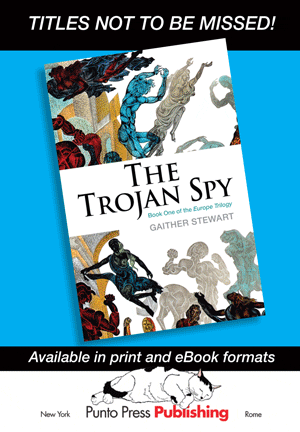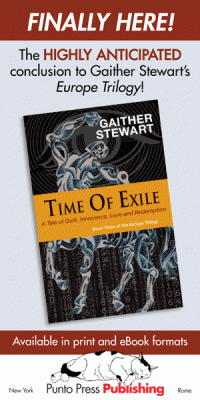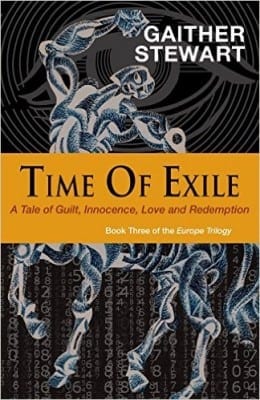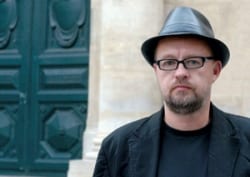Her failure in that regard is not unique. So do other notable commentators, like Chomsky and Chris Hedges, both in what we might call the liberal-left/social democratic sphere, and the problem seems to be an aversion to condemning the system in toto, intrinsically, and without qualifiers. The upshot, as Schechter notes, joined in his complaint by other perceptive observers in the same thread, like Tom Baldwin, , Chris Driscoll, et al, is to leave the door open for a reformist approach to capitalism, as if it were a curable disease, which it isn’t. Capitalism as the dominant paradigm of our age is not evil because it’s been mismanaged by bad or incompetent people. What we face in economics, social policy and foreign policy—a warmongering, sociopathic and totalizing imperialism— are not aberrations, but the logical outgrowths of a system predicated on a selfish matrix of society in which proprietary acquisition is unbound and normative. Thus capitalism is simply doing what it inexorably does given its core dynamic. As a system of social organization, capitalism is unique, a rampaging cancer, today a global cancer, and there’s no hyperbole in that.
Because of things Naomi Klein had said about the book she was writing, I awaited it eagerly for years. And on the first day that it became available, I eagerly downloaded a copy and gobbled it down, and I’ve had indigestion ever since. Or, changing metaphors slightly, I’ve been in a love-hate relationship with that book. And I’ve been trying to explain why, and haven’t entirely succeeded. Klein collects lots of material showing how capitalism is making our planet uninhabitable, but she never quite gets around to analyzing capitalism itself and showing that it is inherently ecocidal. Such an analysis need not be long or complicated. David Suzuki did it quite well, in his four-minute video titled “Externalities,” and most of the four minutes was just devoted to pictures without any words at all. Okay, maybe Suzuki should have added an actual definition of “externalities,” but that only would have required another sentence or two.
Anyway, a couple of days ago Sam Gindin posted a fairly good, medium-length review of Klein’s book on Jacobin Magazine. Deserves to be read.
[dropcap]Naomi Klein[/dropcap] is a longtime movement and media icon, a gifted synthesizer and popularizer who, over the past two decades, has been a leading chronicler of anti-corporate, anti-globalization, and anti-capitalist social movements (a series of “anti”s that undeniably needs some unpacking).
Who else on the Left gets a sympathetic interview on the evening news of Canada’s publicly owned television broadcaster before the release of her latest book? And who else, as a preview of that book, is immediately given a chance to explain to a national audience why, from the perspective of the environment, capitalism is “the main enemy?”
Klein’s writings and talks have provided “the movement” with needed context and coherence, and served as a conduit and catalyst for discussions, contributing to its recruitment and growth. Her new book, This Changes Everything: Capitalism vs. The Climate, is the climax of her highly influential trilogy and also registers how much her perspective has changed over the last fifteen years.
This shift centers on both her assessment of the movement — more than ever before, Klein expresses frustrations with the movement she is part of and still sees as fundamental to social change — and her deeper appreciation of capitalism “as the main enemy.” On this latter point, her earlier criticisms of particular aspects of capitalism have now expanded into suggesting — or at least coming very close to suggesting — that capitalism has become the central barrier to human survival and progress.
Klein’s trilogy began with No Logo, which came out in 1999 and exposed the manipulative and exploitative underbelly of consumer culture. Fortuitously published amid the Battle of Seattle protests against the World Trade Organization and later branded the “bible of the anti-globalization movement,” No Logo built on the moral crusade across university campuses against the corporate use of sweatshop labor for that culture. But it mistakenly separated supposedly “good” and “bad” corporations, obscuring the larger social system in which these companies lived and acted.
Klein’s second major book, The Shock Doctrine: The Rise of Disaster Capitalism also arrived at a propitious moment: in 2007, just before the financial implosion and the most dramatic economic crisis since the Great Depression. This time Klein chronicled how corporations and capitalist states pounce on the opportunities provided by man-made or natural crises to “ram through policies that enrich a small elite.” In this case, though, the focus on crises underplayed what capitalism does between crises.
Again displaying a penchant for well-timed releases, Klein’s This Changes Everything reached bookstores two days before October’s massive Climate March in New York City. Here it is no longer capitalism’s bad apples that are the focus, nor capitalism’s ability to use crises against us, but the organizing principles of the system itself — and the environmental consequences that follow. “[O]ur economic system and our planetary system are now at war,” Klein writes, “and it’s not the laws of nature that can be changed.”
In characteristically accessible language, Klein summarizes the alarming scientific consensus on climate change. But the significance of This Changes Everything doesn’t lie in Klein’s detailed and passionate description of the urgency of the environmental crisis. Rather, its importance lies in Klein’s determination to demonstrate that changing our relationship to nature is inseparable from changing our relationship to each other — by “transforming our economic system” (I’ll return later to ambiguities in how this is interpreted).
The immediate threat to the earth “changes everything” in the sense that just adding “the environment” to our list of concerns is not good enough.
The sheer scale of the problem necessitates a politics that can take on capitalism. We must do away with any notions, Klein asserts, that the environmental crisis can be contained and eventually rolled back through policy tinkering (though addressing symptoms is necessary); technical fixes (though sensible technological advances should be vigorously pursued); or market-based solutions (no qualification necessary — it’s silly to expect the market to solve problems it was instrumental in creating). Something far more comprehensive is required.
To emphasize this, however, is not just to expose the painfully inadequate solutions of the Right, but also to ask the hard questions of the environmental movement. As important as the movement has been to placing the issue on the agenda and bringing young people in particular into the struggle, its organizational forms simply do not match what we are up against. After decades of engagement, the environmental movement remains relatively marginal, capable of slowing down this or that trend but not of reversing and correcting capitalism’s reckless trajectory.
Klein is especially critical of those sections of the movement that jumped on the “green capitalism” bandwagon in the 1970s. In a pattern eerily reminiscent of the bureaucratization of unions that environmentalists once held up as the antithesis of their own politics, their environmentalism
stopped being about organizing protests and teach-ins and became about drafting laws, then suing corporations for violating them, as well as challenging governments for failing to enforce them. In rapid fashion, what had been a rabble of hippies became a movement of lawyers, lobbyists, and UN summit hoppers. As a result many of the newly professionalized environmentalists came to pride themselves on being the ultimate insiders, able to wheel and deal across the political spectrum.
Klein goes on to point out that “so long as the victories kept coming, their insider strategy seemed to be working… Then came the 1980s.” Again paralleling the labor movement, capitalism’s turn to neoliberalism exposed the extent to which the environmental movement had become a paper tiger, able to maneuver somewhat within the system, but without the capacity for independent, sustained mass mobilization.
Yet beyond exposing this orientation, we also need to ask what, beyond the opportunism of access to resources and entry into the inner circles, accounts for the eventual betrayals of these former idealists.
How much of a factor in looking for easy fixes was the mix of extreme urgency honestly felt and an awareness of the limited impact of sporadic demonstrations? To what extent was the movement’s vulnerability to co-optation on the one hand, and exhaustion and retreat on the other, linked to having no broader vision beyond the environment and little or no strategic plan for truly challenging power?
These are, of course, not just questions of history but have immediate relevance. And they also challenge that part of the movement that didn’t sell out but remained loyal to their original principles. As much as Klein puts her hope in this latter group, she also — to her credit — admits to frustrations with key aspects of its strategic orientation. She makes two overlapping points here, one organizational, the other strategic.
First, there is the tendency of many in the movement to mistakenly identify structures themselves as part of the problem. There is no going forward, however, without the most serious development of institutions that can deal on a mass scale with resources, coordination, generational continuity, leadership development, outreach, popular education, and, especially, the accountability structures to make complex and difficult collective choices and to keep wayward leaders in check.
As Klein writes, “The fetish for structurelessness, the rebellion against any kind of institutionalization, is not a luxury today’s transformational movements can afford… Despite endless griping, tweeting, flash mobbing, and occupying, we collectively lack many of the tools that built and sustained the transformative movements of the past.”
This reluctance to do deep organizing and institution building, again similar to the labor movement, has contributed to series of defeats since the early 1980s. And those defeats have engendered a failure of imagination, inseparable from the fading of worldviews and structures that bring confidence to and sustain collective work.
Second, Klein insists that the struggle against climate change cannot be won by fear alone. “Fear is a survival response. It makes us run, it makes us leap, it can make us act superhuman. But we need somewhere to run to. Without that, the fear is only paralyzing.” (It might also be added that fear can produce support for the immediate nostrums offered by green capitalism).
Similarly, though the issue of consumerism must be taken on, simply calling for a more austere lifestyle only reinforces the austerity pushed by capitalist states. The issue is not just living with “less” but living differently — which can also mean better.
It is about an alternative society. And to the extent that some sacrifices are indeed necessary, these must involve both a radical equality of sacrifice and one that sees such sacrifices as “investments” in transforming society, rather than concessions to preserve capitalism.
To the uncomfortable question of “how can we persuade the human race to put the future ahead of the present,” Klein borrows from Miya Yoshitama and answers “you don’t.” Instead you act on the presumption that “if there has ever been a moment to advance a plan to heal the planet that also heals our broken economies and shattered communities, this is it.”
And so you point to a long series of issues directly linked to the environment — housing, transportation, infrastructure, meaningful jobs, collective services, public spaces, greater equality, and a more substantive democracy — and work to convince people that “climate action is their best hope for a better present, and a future far more exciting than anything else currently on offer.”
In contrast, the mainstream environmental movement, Klein laments, “generally stands apart from these expressions of mass frustration, choosing to define climate activism narrowly — demanding a carbon tax, say, or even trying to stop a pipeline.”
Building a non-parochial, mass movement against climate change isn’t about de-emphasizing the central importance of the environmental crisis but of thinking about it politically and in the context of wider values. Such a mass movement needs to forge its own common sense, structures independent of capital, and the energy and staying power that comes with a realizable, if distant, vision.
Once we appreciate that the scale of the climate change issue references not just how much needs to be done in environmental terms, but what needs to be done to transform society, we are at a new, even more intimidating, stage. We’ve added the need to take on capitalism and must be clear about what this means.
Klein deserves enormous credit for putting capitalism in the dock. Yet she leaves too much wiggle room for capitalism to escape a definitive condemnation. There is already great confusion and division among social activists over what “anti-capitalism” means. For many if not most, it is not the capitalist system that is at issue but particular sub-categories of villains: big business, banks, foreign companies, multinationals.
Klein is contradictory on this score. She seems clear enough in the analysis that pervades the book that it is capitalism, yet she repeatedly qualifies this position by decrying “the kind of capitalism we now have,” “neoliberal” capitalism, “deregulated” capitalism, “unfettered” capitalism, “predatory” capitalism, “extractive” capitalism, and so on. These adjectives undermine the powerful logic of Klein’s more convincing arguments elsewhere that the issue isn’t creating a better capitalism but confronting capitalism as a social system.
This ambivalence is compounded by Klein’s overemphasis on ideology as a driver of social change. The dispute here is not over the relevance of ideology, but the unmooring of ideology from its context.
That Friedrich Hayek and Milton Friedman were largely ignored in the postwar years then idolized in the 1980s was not because the strength of their arguments won converts but because contradictions in capitalism and shifts in the balance of class forces placed a more aggressive capitalism on the agenda, which opened the door to these waiting ideologies.
It is one thing to stress popular education and our own ideologies and common sense as part of taking on structural power in our societies; it is another to think ideology is all and underestimating what needs to be done (or at the extreme, naively converting the struggle from below into winning elites over to our ideology).
Capitalism does of course vary across time and place, and some of the differences are far from trivial. But in terms of substantive change, we should not overstate the importance of these disparate forms. Moreover, such differences have not increased but contracted over time, leaving us with a more or less monolithic capitalism across the globe.
It is not just that any capitalism is inseparable from the compulsion to indiscriminate growth, but that capitalism’s commodification of labor power and nature drives an individualized consumerism inimical to collective values (consumption is the compensation for what we lose in being commodified and is the incentive to work) and insensitive to the environment (nature is an input, and the full costs of how it is exploited by any corporation are for someone else to worry about).
A social system based on private ownership of production can’t support the kind of planning that could avert environmental catastrophe. The owners of capital are fragmented and compelled by competition to look after their own interests first, and any serious planning would have to override property rights — an action that would be aggressively resisted.
As Klein notes, even countries that have spoken out against extractivism — in response to pressure from indigenous environmentalists — have found themselves compelled by the options capitalism offers to mine and sell as much of whatever their soils offer.
As for the Global North using its technology and wealth to expand the options in the Global South, this kind of solidarity would imply both a cultural transformation in the North and direct control over technology and social wealth so global redistribution is possible — each of which can only be imagined in a post-capitalist society.
There are some who, seeing the limits of capitalism in our time, turn to examples from the romanticized postwar era. But it was during the Keynesian welfare state period that freer trade made its great leap forward, multinational companies (MNCs) began their global expansion, finance — benefitting from the growth of mortgages and pensions and following MNCs abroad — saw its first wave of explosive expansion, radicals and their ideas were marginalized, and consumerism spread to the working class.
Furthermore, it is hard to miss the fact that capitalists and capitalist states have long lost interest in that earlier era which, for all its limits, still imposed too many barriers on the drive for profits. It is capitalism— not a qualified capitalism, but really existing capitalism and the only capitalism on offer — that “is the main enemy.”
It is crucial to be clear on this point, because if we conclude that the environment can’t be regenerated under capitalism, then it is this that becomes the great game-changer. It is one thing to ask how we can organize ourselves better to register our dissatisfaction and to pressure or lobby corporations and states to modify some of their ways withincapitalism. It is quite another to conclude that we must organize ourselves for the far more ambitious task of replacing this powerful system.
We need to fight as hard as possible for reforms that limit environmental damage, but such a battle for reforms must be used to build a movement that can eventually take us beyond capitalism.
With the task of transforming capitalism so daunting and the environmental crisis so urgent, some might suggest we rethink our argument and retreat into a broader environmental alliance that includes sympathetic elites, even if it means sacrificing other goals such as equality and even democracy. This, it should by now be abundantly clear, is no option at all; it can only mean a return to a discredited green capitalism.
Such a concessionary strategy would undermine our base while doing little to ward off climate change. “Enlightened” elites won’t take kindly to undermining capitalism’s institutions, so currying their favor is foolhardy. Pre-emptive disarmament will only ensure that elites try to save themselves at our expense. We have no choice but to get on with it, no matter how overwhelming the undertaking.
Klein doesn’t supply us with an alternate strategic blueprint, but it’s hard to fault her for the omission — visionary “recipes” for “cook-shops of the future” have long been in short supply on the Left. This Changes Everything is still Klein’s best and most important book. It is a contribution to getting us going in the right direction. It doesn’t shy away from soberly reflecting on the state of the movement, presents some crucial insights for moving ahead, and invites — even if sometimes ambiguously — the broadest discussion on what needs to be done and the necessity of rethinking how to do it.
At the end of her book, Klein is about to interview the youthful head of Syriza, the radical Greek party now on the brink of taking power. She asks a Greek comrade what she should ask him, and the person answers: “Ask him: When history knocked on your door, did you answer?” As Klein concludes, “That’s a good question for all of us.”
CREDITS
AS YOU KNOW, THERE’S A COLOSSAL INFORMATION WAR GOING ON, AND THE FATE OF THE WORLD LITERALLY HANGS ON THE OUTCOME.
Start with something simple: Share our posts.
If you don’t, how can we ever neutralize the power of the corporate media?
![]()
 [dropcap]S[/dropcap]cintilla (2014), renamed The Hybrid, takes place in a former Soviet Republic where foreign mercenaries are sent on a secret mission to recover genetic material of an alien-human hybrid. They make their way past sadistic and psychotic Russian militias (there’s a civil war going on) to an underground bunker containing the top secret Soviet-era laboratory where the genetic material can be found. It turns out that Soviet scientists recovered alien DNA from a meteorite and fused it with human DNA to attempt to create (what else?) a hybrid race of super-soldiers. In the underground research lab we encounter a bust of Stalin and a portrait of Lenin where he seems to be dressed in drag, or else kitted out like a punk rocker; mockery remains an oft-used and effective propaganda device to denigrate an enemy target. However, the head researcher that the mercenaries encounter in the subterranean realm turns out to be British. Why British?
[dropcap]S[/dropcap]cintilla (2014), renamed The Hybrid, takes place in a former Soviet Republic where foreign mercenaries are sent on a secret mission to recover genetic material of an alien-human hybrid. They make their way past sadistic and psychotic Russian militias (there’s a civil war going on) to an underground bunker containing the top secret Soviet-era laboratory where the genetic material can be found. It turns out that Soviet scientists recovered alien DNA from a meteorite and fused it with human DNA to attempt to create (what else?) a hybrid race of super-soldiers. In the underground research lab we encounter a bust of Stalin and a portrait of Lenin where he seems to be dressed in drag, or else kitted out like a punk rocker; mockery remains an oft-used and effective propaganda device to denigrate an enemy target. However, the head researcher that the mercenaries encounter in the subterranean realm turns out to be British. Why British?![]()




 [dropcap]T[/dropcap]IME OF EXILE, the third volume of Gaither Stewart’s Europe Trilogy, is a political novel. I see no reasons to conceal it or to feel shame. On the contrary.
[dropcap]T[/dropcap]IME OF EXILE, the third volume of Gaither Stewart’s Europe Trilogy, is a political novel. I see no reasons to conceal it or to feel shame. On the contrary.





